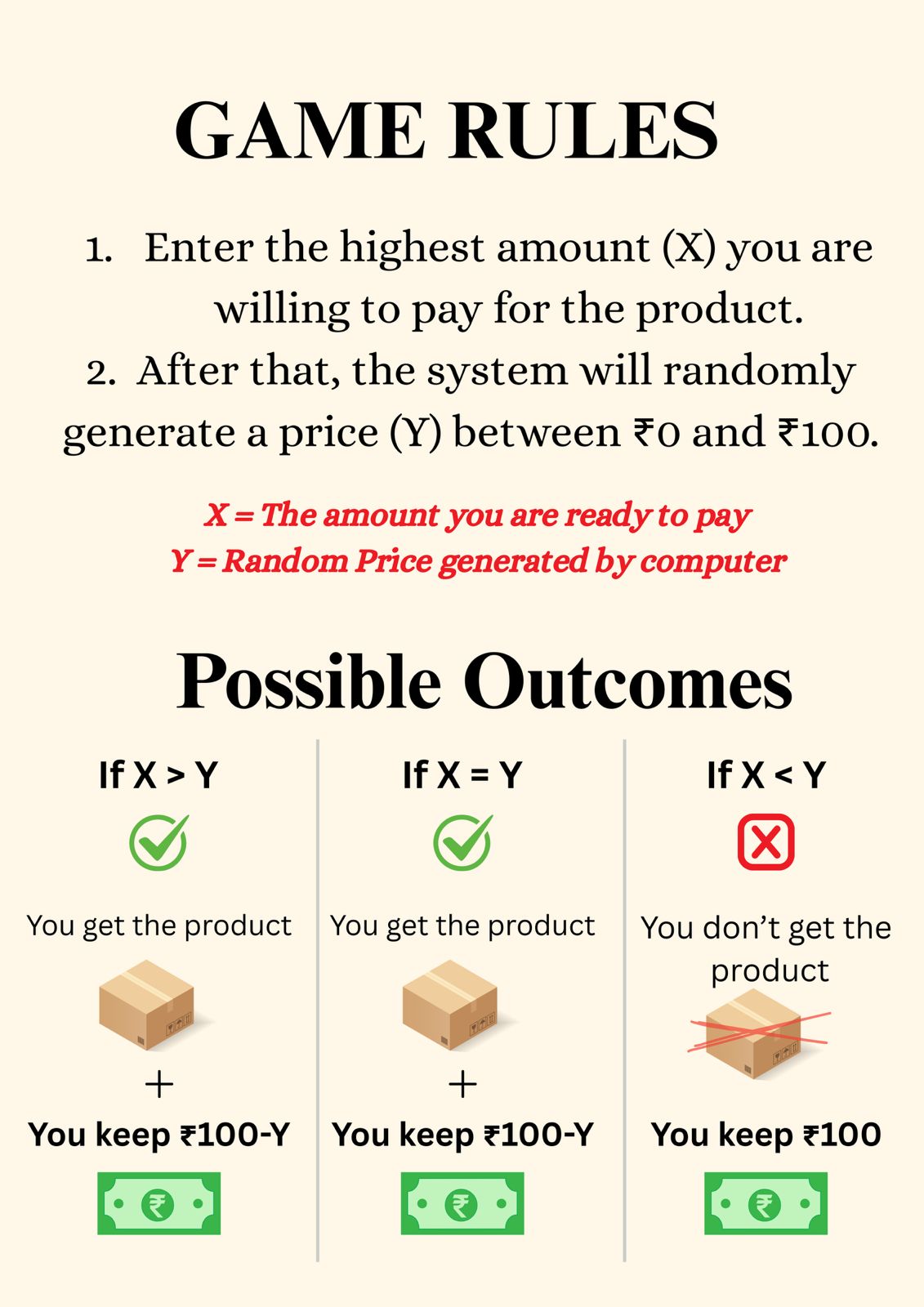Institutional Review Board [IRB]
Informed Consent Form for Participation in Research Study
Principal Investigators of research:
- Vidya Vemireddy
IIM-Ahmedabad, +91-79 71524953
vidyav@iima.ac.in - Ajalavat Viriyavipart
AUS, 971-6-515-4692
aviriyavipart@aus.edu - Adrian Lopes
AUS, 971-6-515-4691
alopes@aus.edu - Dina Tasneem
AUS, 971-6-515-4626
dtasneem@aus.edu
Purpose:
You are invited to participate in a research study on consumer choices in the presence of different types of information on product use. We are a team of researchers from IIM-Ahmedabad and the American University of Sharjah, UAE. The purpose of this study is to understand the effects of information on alternative food uses, environmental information, and expiry dates on the purchase of food products that are close to expiry.
Procedures:
If you decide to participate, you will be asked to do the following things:
- You will be invited to take part in an experiment where you would be asked your choices about purchasing food items with various information as described below.
- You would be given an endowment of ₹100, which you can use to buy a product from the experiment.
- You will be required to state your willingness to pay for two items – bread and fresh fruit (banana) – based on whether you are randomly assigned to a baseline with no information or if you are assigned to a treatment group with various information on one or more of the following: alternative food uses/ environmental information/ expiry date. Only one of the decisions will be randomly selected. For example, if bread is randomly selected and the price is ₹40, and if your stated willingness to pay is greater than ₹40 you will get the bread for ₹40 and the remainder of your endowment i.e., ₹100-40 = ₹60.
- A post-experiment survey will record each participant's socioeconomic data and attitudes towards food waste and its issues. The survey, your choices, and your responses will be recorded online. However, no directly identifiable data will be collected during the experiment or survey. This study will include 360 randomly chosen customers at the grocery store.
- Your participation will not be audio/video recorded. Your participation will take approximately 10 minutes of your time.
Risks:
There are no foreseeable risks to participating in this study.
Benefits:
The benefits that may reasonably be expected to result from participation are that you will receive a cash endowment of ₹100 from which the research team will deduct the price of the food item that you successfully purchase. Other than this, there are no other direct benefits to you for participating in this study.
Payments:
You will receive cash endowment of ₹100 from which the research team will deduct the price of the food item that you successfully purchase. This shall constitute a payment for your participation.
